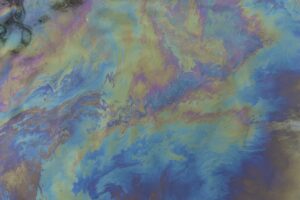La Coqueta is a children’s clothing brand that combines Spanish heritage with contemporary design to create unique and timeless pieces for kids. Founded by Celia Munoz, a mother of five, La Coqueta was born out of the frustration of not finding high-quality and affordable clothing for her children. With sustainability and ethical production practices at the forefront of their mission, La Coqueta has established itself as a brand that values quality over quantity while positively impacting the environment and society.
Sustainability
La Coqueta’s commitment to sustainability is evident in their choice of materials and production processes. They prioritize natural fibers such as cotton, linen, silk, wool, and cashmere, which are less toxic to the environment than synthetic materials. They also use organic cotton, which is significantly more eco-friendly and uses fewer pesticides. La Coqueta’s collections are made in small runs, reducing waste and excess inventory. In addition, the company has implemented small changes to become more eco-conscious, such as making their eCommerce bags fully recyclable and using 20% recycled material in their production.
Ethical Production
La Coqueta’s commitment to ethical production extends to every aspect of their business, from sourcing raw materials to working conditions in their ateliers. They work with socially responsible sources to ensure that the materials they use are produced in a way that is ethical and fair. La Coqueta’s garments are made in small, family-run ateliers in Spain, where workers are treated with respect and paid fairly. The company also partners with various organizations and political parties to plant trees in areas of deforestation in Spain and Mexico, with a goal of planting one million trees by 2024.
Quality and Durability
La Coqueta values quality and durability, and their garments are designed to be long-lasting and able to be passed down from one child to the next. They use natural fibers that are easy to wear and wash, making them practical for parents while remaining beautiful and stylish. Their garments are fully lined with 100% cotton, making them extra comfortable on delicate skin. The company’s shoes are made from 100% Spanish leather, renowned for its soft, supple touch and durability, ensuring they stand the test of time.
Philanthropy
Their philanthropic efforts also reflect La Coqueta’s commitment to sustainability and ethical production. They have partnered with Plant-for-the-Planet to combat the climate crisis and have embarked on a journey to be sustainable in everything they do. Their goal is to plant one million trees by 2024 in areas of deforestation in Spain and Mexico. The company’s commitment to giving back to the environment and society is an integral part of their mission.
Final Thoughts
La Coqueta is a children’s clothing brand that stands for sustainability, ethical production, quality, and durability. Their commitment to positively impacting the environment and society is evident in everything they do. With their focus on natural fibers, small production runs, and philanthropic efforts, La Coqueta is leading the way in a sustainable and ethical fashion for children. By choosing La Coqueta, parents can dress their children in beautiful, timeless garments that are made to last while positively impacting the world.
Related Topic:
Why Brands Should Prioritize Natural Fibers Over Synthetic Materials
In recent years, there has been growing awareness of the need to prioritize sustainability and reduce the environmental impact of fashion and design. One important way that brands can do this is by prioritizing natural fibers over synthetic materials. Here’s why:
Environmental Impact of Synthetic Materials
The production of synthetic materials like polyester, nylon, and acrylic requires using non-renewable resources such as petroleum. This production process is also energy-intensive and generates significant amounts of greenhouse gas emissions, contributing to climate change. Synthetic materials are also non-biodegradable, meaning they do not break down easily in the environment and can contribute to pollution and litter.
Human Health Impacts of Synthetic Materials
Synthetic materials can release toxic chemicals when they are produced or worn. These chemicals can be harmful to both the environment and human health. For example, polyester and nylon can release microfibers, which are small fibers that can be inhaled and have been linked to respiratory problems. Synthetic materials can also contain harmful chemicals such as phthalates, which can disrupt hormonal balance, and formaldehyde, which can cause skin irritation and respiratory problems.
Benefits of Natural Fibers
Natural fibers like cotton, linen, silk, wool, and cashmere have a lower environmental impact than synthetic materials. They are often produced using less water and energy and are biodegradable, which means that they break down easily in the environment. Natural fibers are also more sustainable than synthetic materials, as they can often be recycled or repurposed. In addition, natural fibers are comfortable to wear and hypoallergenic, making them ideal for clothing and bedding.
Additional Reasons to Prioritize Natural Fibers
Natural fibers like wool and cotton are often more durable than synthetic materials. They can last longer and are less likely to pill, snag or fade, which reduces the need for frequent replacements. Natural fibers are also versatile and can be used for a wide range of products, from clothing and bedding to furniture and home decor. Additionally, many natural fibers have a rich cultural heritage and are deeply intertwined with the traditions and customs of different communities. Prioritizing natural fibers can help preserve these traditions and support sustainable livelihoods for artisans and farmers around the world.
Final Thoughts
Overall, prioritizing natural fibers over synthetic materials can have a positive impact on the environment, human health, and sustainability. Brands that prioritize natural fibers can also differentiate themselves in a crowded marketplace and appeal to consumers who are increasingly concerned about the environmental impact of the products they purchase. By prioritizing sustainability, brands can also build trust and loyalty among consumers, who are increasingly looking for eco-friendly and sustainable products.









Reader Interactions